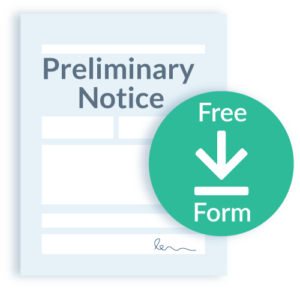Private projects
GC's are not required to send a general 31-day preliminary notice. GC's must send a notice of intent to lien instead.
Additionally, if not contained within their contract itself, direct contractors should provide a "lien information notice" to owners and subs.




